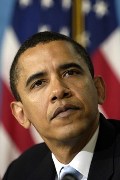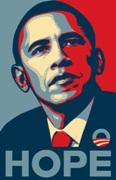The Pirate Bay Is Keel-Hauled
 The Pirate Bay verdict was handed down yesterday in Sweden, and the four defendants were found guilty. Like Evan Brown, I don’t see much of significance in the verdict, although Mike Madison does.
The Pirate Bay verdict was handed down yesterday in Sweden, and the four defendants were found guilty. Like Evan Brown, I don’t see much of significance in the verdict, although Mike Madison does.
However, what I do find interesting about the whole Pirate Bay situation is “Steal This Film II,” a documentary of comments on filesharing and copyright law produced in support of the defendants. Last week, our own IP Law Society here at Marquette organized a showing of the film. What I found particularly intriguing about “Steal This Film II” is its view of how creative content is produced: it’s not produced at all. Rather, content is found, like rabbits in a field; the rabbits then reproduce on their own, while the “author” stands around doing nothing. (See here at 22:46.) This is a view that I think is unconsciously held by a lot of commentators on this issue: there’s no need to ensure that copyright owners are paid for content, because content will continue to get produced in exactly the same quantity and quality as it is today. (Or, as Jessica Litman suggested at the Nies Lecture this year, perhaps we will have to live with a few less special-effects explosions—no big whoop.)
The issue of how to manage the conflict between copyright and digital technologies becomes much easier if you ignore the problem of how to compensate copyright owners. The very reason the problem is difficult is because two seemingly incompatible goals have come into conflict. One is ensuring that expensive works continue to get produced at the same rate they are now. The second is ensuring that digital technologies develop to their full potential. Eliminate one of those goals and—presto!—the problem becomes trivially simple.



 (This is the sixth in a series of posts on Fairey v. Associated Press. See below for other posts in the series.)
(This is the sixth in a series of posts on Fairey v. Associated Press. See below for other posts in the series.)